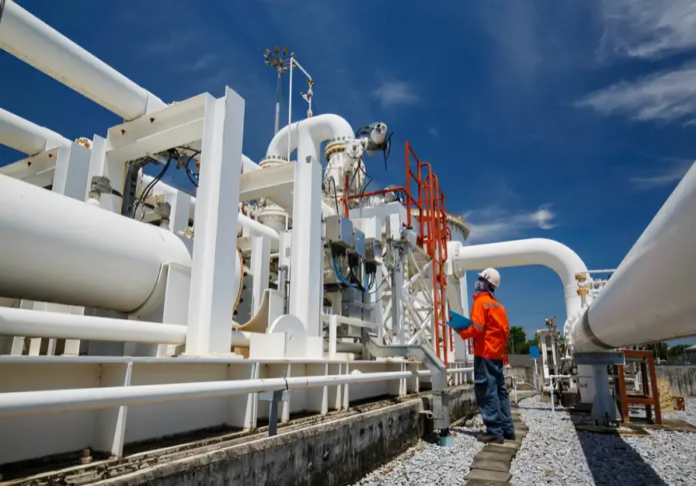Pakistan’s energy sector is on the brink of a major transformation, with the announcement of the groundbreaking White Oil Pipeline Project. Stakeholders from the country’s energy infrastructure have come together to finalize an agreement that marks the beginning of this ambitious project, with strong backing from the Special Investment Facilitation Council (SIFC). The project is seen as a critical development for Pakistan’s petroleum industry, aimed at significantly enhancing the oil distribution network, while also boosting energy security, sustainability, and economic growth.
The White Oil Pipeline Project is a large-scale endeavor that spans 477 kilometers, designed to connect key strategic locations across Pakistan. Starting from Machike in Punjab, the pipeline will extend through Thalian and reach its final destination at Taru Jabba in Khyber Pakhtunkhwa. This extensive network is set to play a pivotal role in strengthening the country’s oil distribution system, which has long been in need of modernization and greater efficiency.
At the heart of the White Oil Pipeline Project are two of Pakistan’s leading organizations: the Frontier Works Organisation (FWO) and Pakistan State Oil (PSO). Together, they will oversee the design, construction, and eventual operation of the pipeline. The project will be constructed in two key phases, with the pipeline running parallel to Pakistan’s motorway system. This strategic alignment ensures seamless transportation of oil from the Attock Refinery, one of the country’s main refineries, to critical points such as Chak Pirana and Faqirabad. By linking these vital energy hubs, the White Oil Pipeline Project will dramatically improve the efficiency and security of oil transport across the country.
A major benefit of the project lies in its potential to significantly reduce transportation costs. Currently, Pakistan relies heavily on road transport for the movement of petroleum products, which is both costly and inefficient. Road-based transport also exposes oil shipments to higher risks of damage, adulteration, and theft. By shifting oil transportation to a dedicated pipeline system, the White Oil Pipeline Project is expected to save the national treasury billions of rupees annually. These savings come from lower fuel consumption in road transport, reduced maintenance costs for vehicles, and fewer disruptions due to accidents or delays on busy highways.
Additionally, the project is set to enhance environmental sustainability in Pakistan. With the pipeline expected to carry an initial capacity of 7 million tonnes of oil annually, the shift from road to pipeline transport will also contribute to a reduction in carbon emissions. The eventual expansion of the pipeline’s capacity to 10 million tonnes will further increase its impact, making it a crucial step toward achieving Pakistan’s environmental and sustainability goals.
Beyond cost savings and environmental benefits, the White Oil Pipeline Project is poised to improve the quality and safety of Pakistan’s fuel supply. By utilizing a dedicated pipeline system, the risk of fuel adulteration—where lower-quality substances are mixed with fuel during road transport—will be dramatically reduced. This will not only ensure a more reliable and higher-quality fuel supply for consumers, but it will also contribute to greater energy security for the country as a whole.
The SIFC’s support for the White Oil Pipeline Project highlights the government’s strong commitment to advancing Pakistan’s petroleum sector. As part of its broader initiative to modernize the country’s energy infrastructure, the government is working to expedite the project’s completion, with construction expected to be completed swiftly and efficiently. This urgency is driven by the growing demand for energy in Pakistan, which has placed increasing pressure on the country’s aging infrastructure.
The White Oil Pipeline Project is not just a technical development but a strategic one. It is designed to reduce Pakistan’s reliance on road-based transport for oil, which has been a long-standing challenge for the country. With fuel being transported more safely, quickly, and cost-effectively, the pipeline is expected to bolster Pakistan’s economic growth by ensuring that energy needs are met more efficiently.
Moreover, the project will have far-reaching implications for Pakistan’s energy security. As the global energy landscape becomes more competitive and unpredictable, having a secure and modern oil distribution system is crucial for any nation. The White Oil Pipeline Project positions Pakistan to meet its future energy demands while reducing vulnerabilities in its supply chain.
The rapid pace of progress on the White Oil Pipeline Project is seen as a clear demonstration of the government’s intent to foster industrial growth and attract foreign investment. By addressing long-standing inefficiencies in the oil transport sector, this project sends a strong signal to international investors that Pakistan is open for business and committed to modernizing its energy infrastructure.
Also Read: SIFC to Bring $27 Billion for Pakistan’s Mega Projects
In conclusion, the White Oil Pipeline Project is set to transform Pakistan’s energy landscape. It promises a more reliable, cost-effective, and environmentally sustainable fuel distribution system, enhancing national energy security and supporting the country’s broader economic goals. With the collaboration of the FWO, PSO, and the government’s SIFC, the project marks a bold step forward in Pakistan’s ongoing journey toward energy independence and economic resilience.


